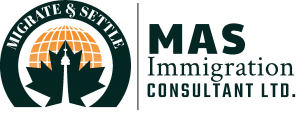LMIA Based Work Permit
A Labor Market Impact Assessment (LMIA) allows a Canadian business to hire an employee from another country. The LMIA proves that no Canadian citizens or permanent residents are available for the position, necessitating the hiring of a foreign worker.
Learn what it takes to be qualified for Canadian immigration and get started on your route to the country.
This law was enacted by the Canadian government to secure jobs for local legal residents first. As a result, businesses must adhere to strict guidelines in order to establish that there was no other option than to hire a foreigner. These rules, on the other hand, safeguard the rights of a potential foreign worker.
A Temporary Foreign Worker Program works hand in hand with the Labour Market Requirement (TFWP). Companies in Canada must present an LMIA document to high-skilled overseas professionals applying for high-demand employment. An employer will obtain a favorable Labor Market Opinion if HRSDC (Human Resources and Skills Development Canada) accepts the application.
TFWP(Temporary Foreign Worker Program)
Employers are allowed to hire foreign workers under the Temporary Foreign Worker program. If employed, these individuals will be considered temporary employees. They may only apply for the foreign worker program and get their work visa if their companies have received a Labor Market Impact Assessment paperwork.
A foreign worker on an LMIA-based visa can apply for permanent residency under specific immigration programs after one year in Canada. The Canadian Experience Class (CEC) under the federal Express Entry system, which leads to PR, is one of these programs. The CEC was designed for foreign temporary residents who had worked in Canada.
LMIA Exempt Work Permits
While an LMIA is typically required when a Canadian business hires a temporary foreign worker, there are certain exemptions.
Entrepreneurs and Self-Employed Persons
An LMIA exemption may be available to private entrepreneurs planning to start or expand a business in Canada. They must own a majority or all of the company. They must also demonstrate that their firm will succeed in Canada and that they will not remain in the country permanently. It’s ideal for seasonal self-employed individuals.
Intra-Company Transferees
Under the Intra-Company Transferees exemption, executives, managers, and specialized expert personnel may be exempt from the LMIA. They must, however, be hired by a foreign corporation with a similar link to the Canadian employer.
Dependents of Foreign Workers
An LMIA is not required for spouses/common-law partners or children of foreign workers with a valid work permit. Dependents in the International Exchange Program, however, require the LMIA.
French-Speaking Skilled Workers
Foreigners who speak French have an edge. As a result, the Canadian government promotes foreign employees who speak French to reside outside of Quebec. They must apply through the Francophone Mobile Program, which does not require an LMIA, if they have abilities in a National Occupation Classification (NOC) 0, A, or B.
Academics
Certain foreign nationals, such as researchers, professors, and other excellent individuals with persuasive evidence of their degree of success, are exempt from obtaining an LMIA under this clause.
Let us help you with your case
Our consultants are all ICCRC certified and we analyze every case with care. Book a free consultation appointment and let’s discuss about your plans.
